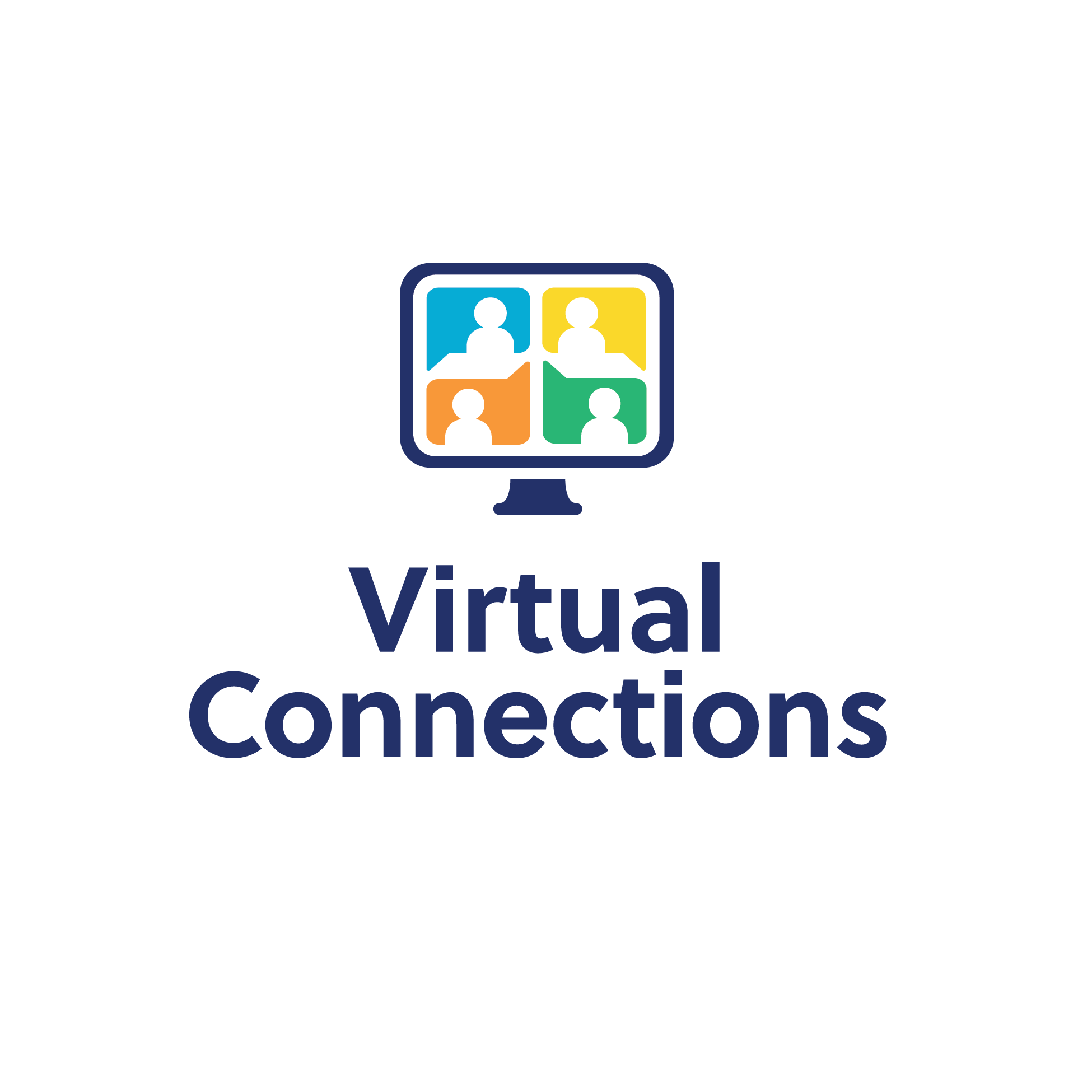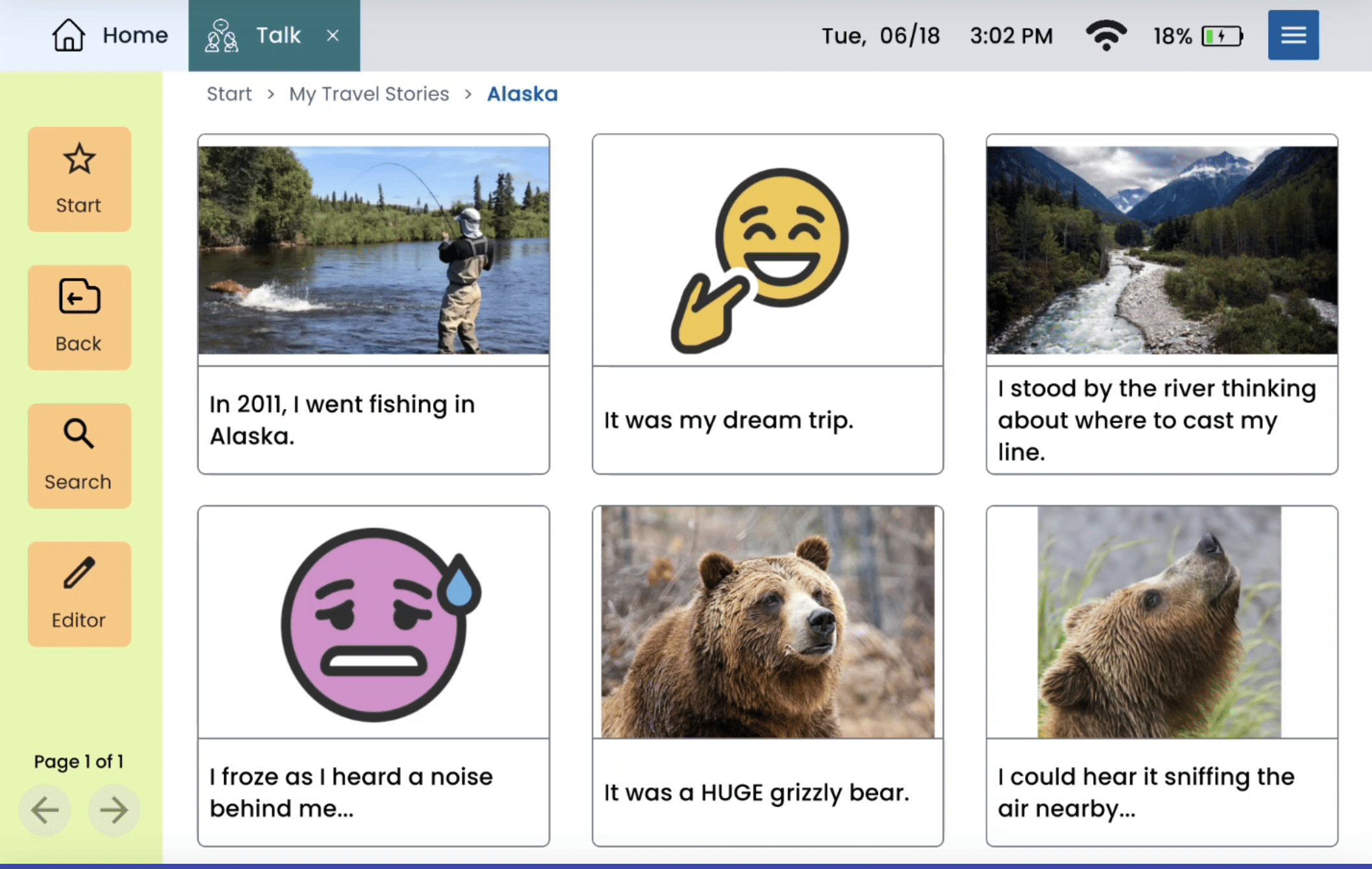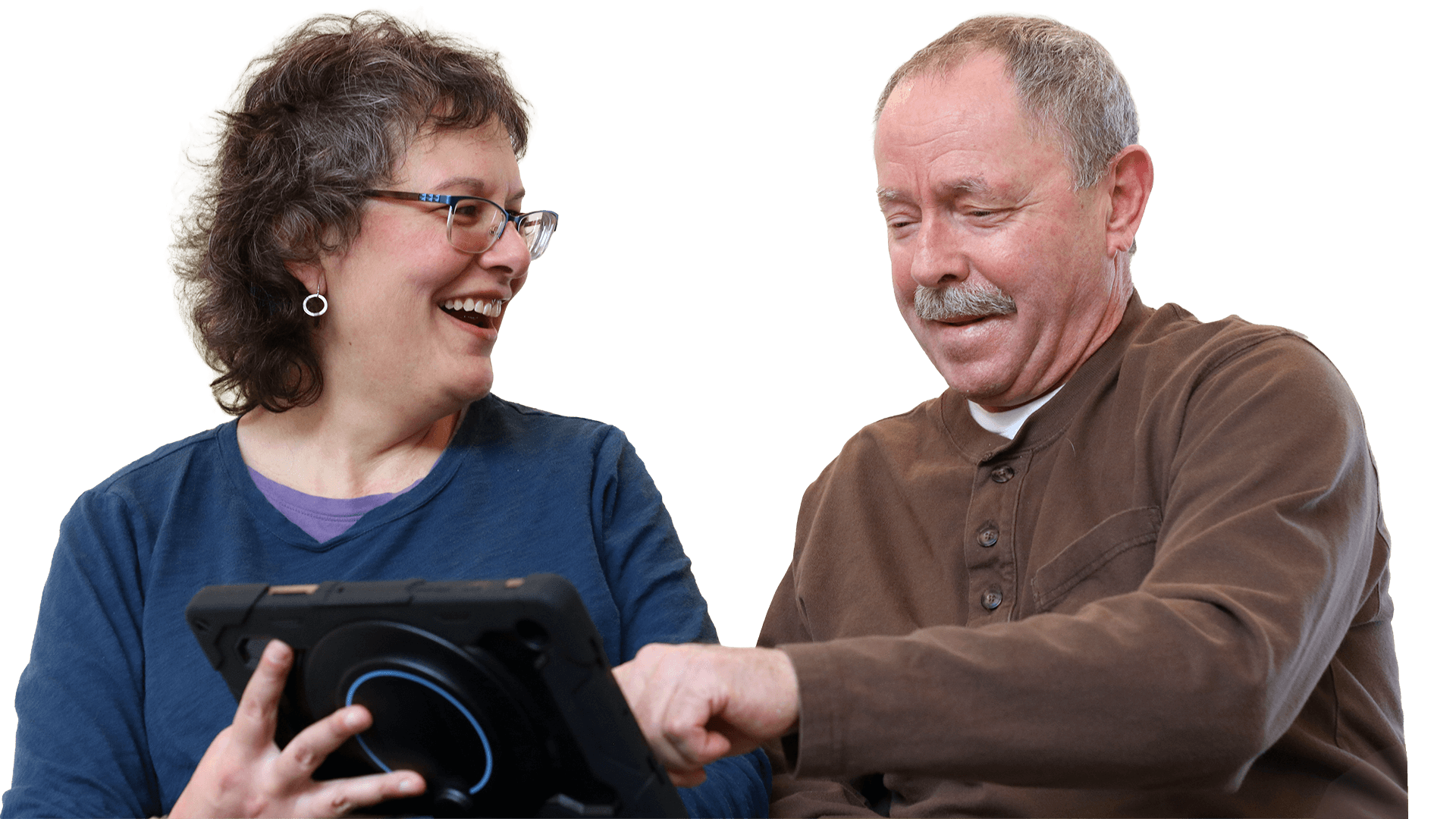3 Ways To Stay Connected With Aphasia Tools, Groups, And More
Published on Mar 30, 2021

An aphasia diagnosis will undoubtedly change life as you know it. Whether you’re a person with aphasia or a care partner, adapting to this new way of life is often challenging. Your day-to-day will likely be filled with a number of routines. New faces and names will become common as you navigate doctor visits, speech therapy sessions, and more.
One of the most difficult challenges for many of those with aphasia is how it affects relationships with friends and family. More than 50% of caregivers report that their relationships with friends worsened, while roughly 40% say relationships with people in general have declined.
These relationships can deteriorate for a variety of reasons. Members of Lingraphica’s Aphasia Support Group shine some light into the situation with their experiences. Common themes include difficulty coming to terms with the illness, difficulty communicating, and general lack of awareness.
Relationships are about connecting with another individual. Staying connected when you have aphasia can be difficult. Thankfully, there are a number of resources that empower people with aphasia and their care partners to stay connected. Below, we’ll walk through a few ways that might help you overcome some challenges and connect with others.
Video Communication Apps That Do More
In 2020, the world was forced to get comfortable with video conferencing platforms like Zoom in the wake of COVID-19. This sort of software allows businesses to run, schools to educate, and individuals to connect. When aphasia is involved, conversations can present many challenges, and sometimes a webcam can add further trouble. With Google Meet, however, built-in captioning software can help instantly turn incoming and outgoing words into captions. Though everyone’s experience with aphasia is unique, this feature can help with accessibility to many.
Find Common Ground With Virtual Aphasia Groups
While Aphasia isn’t well known among the general public, it is a common condition. That means there are many people with aphasia and care partners who are out there who can relate to the aphasia experience. Connecting and building relationships is important. A Harvard study revealed that close relationships are what keep people happy throughout their lives.

Those relationships and the ability to maintain them are key reasons why Lingraphica launched Virtual Connections in 2020. These online meetups are facilitated by speech-language pathologists and other experts, and allow for people with aphasia and their care partners to meet others, share ideas, and practice their communication skills.
Sign up for Virtual Connections today.
Stay Up To Date With Current Events
When you have or care for someone with aphasia, it can require a change in priorities. For many, not only do they feel disconnected from their loved ones, but from the world in general. TalkPath News is a specialized online news source created specifically for people with conditions like aphasia. The TalkPath News team handpicks a few news stories from across the world each day, and uploads them to the site. From there, users can have each story read aloud to them sentence by sentence. Additionally, a Facebook group allows for users to discuss stories and more.
About Contributor
Lingraphica helps people with speech and language impairments improve their communication, speech, and quality of life. Try a Lingraphica AAC device for free.













